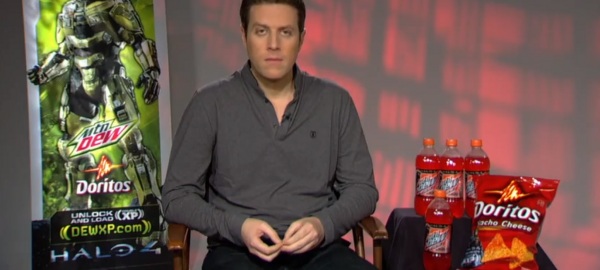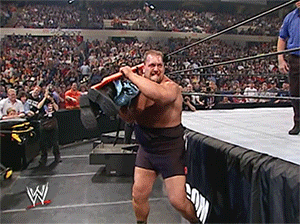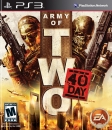Question 1: What do you guys think are the sources for the increasing distrust of video game journalists? Post anything, external environment, specific events, etc.
Question 2 (Optional): Do you guys think the distrust is justified?
Question 3 (Optional): What can game journalists do to regain that trust?
For me, there's a couple of thing:
1. 2007 recession: Caused society in general to become more distrustful of institutions. Capitalism, corporations, government, etc. I believe that it's important to look at the video game industry in this same context. Even if it's unjustified to say that game companies are more greedy this generation than the last, the environment and context could make people perceive that companies are.
2. Maturity of the internet/social media: Sites like YouTube have matured to the point where you have many, many commentators of some form on video games and the industry. So all points have views, especially strong ones, have gotten a bigger platform than before. Whereas pre-current generation you may have only watched IGN video reviews and maybe posted on message board, you have YouTube channels with huge followings as well as many independent blogs/sites.
3. Inflation of game review scores(?)/PERCEIVED inflation: I don't have any data on this, and I'll actually really appreciate it if someone could either link me to an article that did research on this, or can do research by themselves. It's a bid hard to prove this too, because you can argue that the quality of games increased. But I think most of us can agree that there's been a sentiment that game scores were inflated. For me, the turning point was IGN (and other's) review of GTA IV.
4. PERCEIVED decrease in quality/creativity in games: Again, hard to prove this, but I think that the perception's pretty prevalent. It really doesn't help game journalists for a game like Call of Duty to come out annually, and for there to be high review scores given to them (whether it's legitimate or not). Number 2 (internet) especially makes this worse, because strong negative opinions have a much bigger impact now.
5. Maturity of video game industry/Increased advertising spending/sophistication(?): Again, bit ambiguous. I'm not sure if it's correct to say that the game industry wasn't "mature" last gen (or flip side, is it mature now?), and I don't have data on advertising (I'm sure the absolute number went up though, forgetting percentage of sales or something). I think we could agree that again, many people PERCEIVE that the game industry has become over commercialized. People may perceive that they've been bombarded more with advertisements, when you have things like social media essentially being a means for advertising.
6. Scandals: 2 big things really stand out in my mind.
1) Jeff Gerstmann's firing over K&L:
2) Geoff Keighley photo (whether or not you think the backlash was justified, it's a pretty powerful and simple picture):

Another one is Eurogamer firing a journalist: http://www.forbes.com/sites/erikkain/2012/10/31/eurogamer-confirms-journalist-lauren-wainwright-threatened-legal-action/
7. Console wars: I put this last. I think it may have laid a bit of a foundation (remember when we accused M$ and $ony of bribing review sites?) for creating an atmosphere of distrust (at least in this case, against the other console maker, its players, review sites, and developers that made exclusives).
Putting it together, I think there's 2 main drivers:
1) Distrust of external things creating distrust for game journalists. People are becoming more distrustful of corporations, greed. If people also distrust game COMPANIES, and people ASSOCIATE them with game JOURNALISTS, then yeah the things people attribute to game companies will come over to game journalists.
So things like the perceived lack of quality in games, commercialization, console wars, etc, people are going to associate these things with the journalists, if they associate journalists with game companies. Imagine almost like a mental map where you have all the negative things with companies, and then a line attaching to journalists.

2) Game journalists have lost their integrity to some degree. Again, who knows how much is true, but there must be some truth to claims of corruption. You also have a bunch of scandals that have occured.
Is it justified? I think that it is. Ultimately, it's not really a matter of game journalists are really being bought out or not, but the perception that they are. I feel like they haven't really made a strong effort on their part to disprove the accusations and to regain the consumer's trusts.
What can they do? I think Adam Sessler's taking the first step by really acknowledging the perception, and then committing himself to at least understanding it. I think that one thing game journalists should do is always have some kind of "devil's advocate" for reviews, sort of like the old show Judgement Day on G4TV. Always have someone give another take or spin on a news, game, etc. In a way, they can do better justice to games and news by highlighting the good and bad, rather than either have all positive or just neutral reporting.
Adding personalized commentary is also a way to gain readers. To me, game journalists might have the exclusive access to reviews, but that's pretty much it. News gets distributed quickly through a bunch of sites. Rather than letting YouTube personalities or independent blogs win over readers by giving their own commentary/opinion on the industry, they should do it themselves.












































































